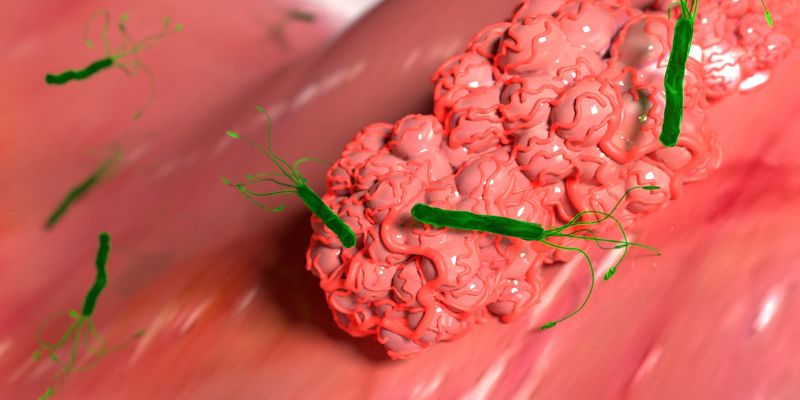Understanding Maple Syrup Urine Disease: Your Guide To Effective Treatment
Rare yet severe genetic disorder Maple Syrup Urine Disease (MSUD) can strike babies and young children. MSUD, named for the urine of affected people smelling distinctly like maple syrup, results from the body's inability to break down particular amino acids contained in proteins. If untreated, the accumulation of these amino acids can inflict significant brain damage and other health problems.
Early diagnosis and treatment are crucial for managing MSUD and avoiding fatal problems. This guide will explain MSUD, how it is diagnosed, and the several treatment options available. Understanding MSUD will help you, whether you are a parent, caregiver, or researcher, make wise decisions regarding treatment and care, guaranteeing a better quality of life for people impacted.

What is Maple Syrup Urine Disease?
Maple Syrup Urine Disease (MSUD) is an uncommon metabolic condition brought on by a genetic mutation altering how the body breaks down particular amino acids from protein. The disorder gets its name from the unique sweet, maple syrup-like urine smell of afflicted people. Because MSUD is inherited in an autosomal recessive fashion, a child will acquire the condition only if both parents contain the mutant gene. Although early stages of the illness might often be modest, the condition is most usually detected in infancy.
MSUD can cause serious problems without therapy, including brain edema, neurological impairment, and even coma. A lack of the branched-chain alpha-ketoacid dehydrogenase (BCKD) enzyme causes MSUD. Breaking down leucine, isoleucine, and valine among the amino acids depends on this enzyme. These amino acids injure other organs, including the brain, and turn deadly when they accumulate in the bloodstream. Prevention of life-threatening results depends on early diagnosis and treatment.
Symptoms of Maple Syrup Urine Disease
Though they can sometimes arise later, particularly in milder types of condition, symptoms of Maple Syrup Urine Disease (MSUD) usually initially show in the first few days or weeks of life. Early symptoms may be mild and resemble other common diseases, which makes MSUD challenging to identify without particular testing. Typical newborn and baby symptoms include irritability, poor eating, and vomiting. The youngster could seem lazy, lacking energy, and have unusual muscular tone or rigidity.
The sweet, maple syrup-like urine smell is one of the most unique indicators of the condition; it provides the name for it. If untreated, symptoms can increase quickly and cause severe neurological problems. It covers developmental lags, seizures, and brain swelling. Under extreme circumstances, MSUD can cause coma or perhaps death. Often beginning in infancy or adolescence, less severe forms of MSUD, sometimes called intermediate or intermittent varieties, may be caused by stress, sickness, or a high-protein diet.
Diagnosing MSUD
Usually starting with newborn screening, which is conducted soon after delivery in many countries, Maple Syrup Urine Disease (MSUD) is diagnosed. Leucine, isoleucine, and valine—markers of MSUD—are among the specific amino acids this test searches for in excess. If the screening findings are aberrant, more investigations are done to validate the diagnosis. Genetic testing is common in confirmatory studies to find mutations in the BCKDHA, BCKDHB, or DBT genes—which generate the enzyme required to break down branched-chain amino acids.
Urine and Blood testing can be done to evaluate the state of amino acids and other compounds in the body and, hence, the metabolic process. Sometimes, particularly in milder versions that show up later in life, MSUD may not be immediately clear-cut. In these situations, diagnosis can come about following the start of symptoms, including metabolic crises brought on by disease or a diet heavy in proteins. Starting therapy and minimizing major problems depends on early diagnosis.

Treatment Options for MSUD
MSUD treatment centers on controlling symptoms and stopping amino acid accumulation. It calls for regular monitoring, medical treatment, and dietary adjustments.
- Dietary Management: MSUD treatment's foundation is a low-protein diet. One should avoid foods heavy in valine, isoleucine, and leucine. Affected people require amino acid supplements and especially designed medicinal diets. These products limit dangerous amino acids and supply vital nutrition. One can design a customized food plan by a qualified dietician. Monitoring amino acid levels and changing the diet depend on regular blood testing.
- Emergency Medical Care: MSUD symptoms can aggravate during disease or metabolic crises. Stabilizing the patient calls for immediate medical attention. Treatments can call for glucose, IV fluids, and medications to reduce amino acid levels. Dialysis may be done in extreme cases to eliminate toxins from the blood rapidly. Usually, successful management of acute crises requires hospitalization.
- Liver Transplantation: Some individuals find a long-term fix in a liver transplant. The replacement liver fills in for the lost BCKD enzyme, enabling regular amino acid metabolism. Liver transplants are usually advised for people with severe types of MSUD. This surgery greatly lowers the chance of metabolic crises. However, lifetime immunosuppressant medications are needed to stop organ rejection.
Advances in MSUD Research
Research constantly advances knowledge of and therapy for Maple Syrup Urine Disease (MSUD). Gene therapy is one exciting field of research that targets the genetic mutation underlying the condition. Future gene therapy could present a possible MSUD cure by fixing the faulty genes causing the BCKD enzyme shortage. Besides gene therapy, researchers are focused on creating new medicinal foods and supplements to control the illness. These developments seek to improve patients' quality of life by supplying necessary nutrients while restricting the intake of negative amino acids.
Working together, research institutions, medical experts, and patient advocacy groups are accelerating MSUD treatment development. Constantly running clinical research and trials helps improve current medicines and investigate fresh ideas. By being educated about these developments, families impacted by MSUD can make better decisions about their treatment and care, offering hope for future better results.
Conclusion:
A dangerous disorder called Maple Syrup Urine Disease (MSUD) calls for early identification and quick treatment to avoid major problems. New medicinal diets, gene therapy, and other research advancements give hope for improved management and future treatments. Patients with MSUD can lead better lives through appropriate dietary management, emergency care, and, occasionally, liver transplantation. Families and caregivers must keep informed about current studies and available treatment choices. Effective management of MSUD and guaranteeing the best possible outcomes for affected people depend on early intervention.












